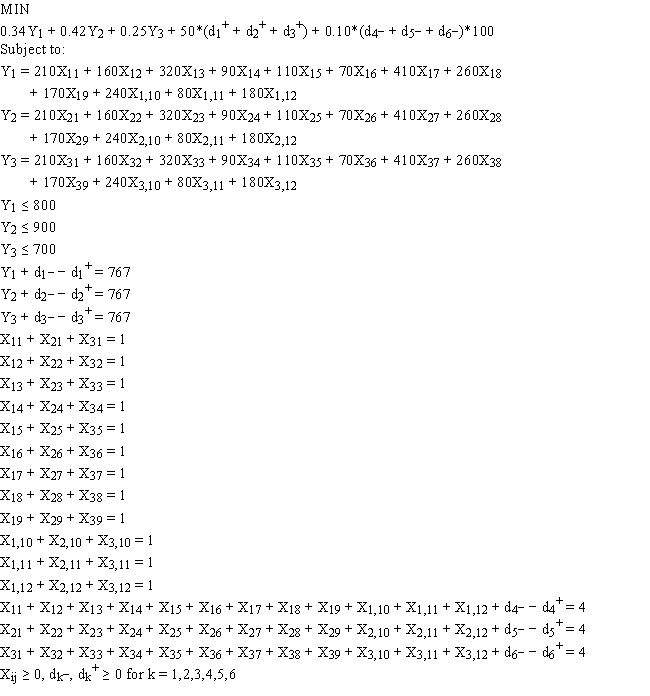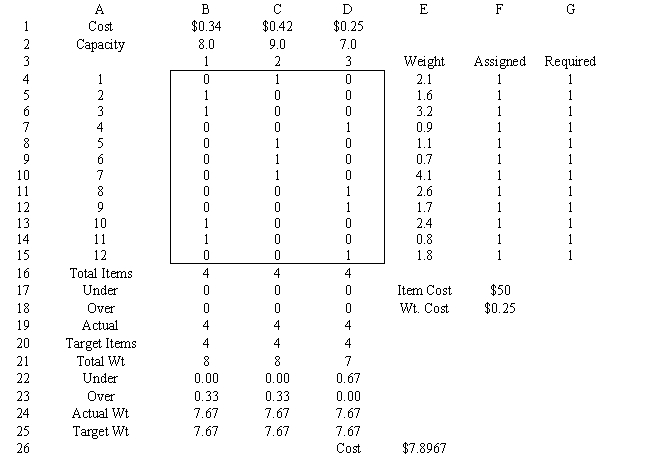Exhibit 7.4
The following questions are based on the problem below.
Robert Gardner runs a small, local-only delivery service. His fleet consists of three smaller panel trucks. He recently accepted a contract to deliver 12 shipping boxes of goods for delivery to 12 different customers. The box weights are: 210, 160, 320, 90, 110, 70, 410, 260, 170, 240, 80 and 180 for boxes 1 through 12, respectively. Since each truck differs each truck has different load capacities as given below:  Robert would like each truck equally loaded, both in terms of number of boxes and in terms of total weight, while minimizing his shipping costs. Assume a cost of $50 per item for trucks carrying extra boxes and $0.10 per pound cost for trucks carrying less weight.
Robert would like each truck equally loaded, both in terms of number of boxes and in terms of total weight, while minimizing his shipping costs. Assume a cost of $50 per item for trucks carrying extra boxes and $0.10 per pound cost for trucks carrying less weight.
The following integer goal programming formulation applies to his problem.
Y1 = weight loaded in truck 1; Y2 = weight loaded in truck 2; Y3 = weight loaded in truck 3;
Xi,j = 0 if truck i not loaded with box j; 1 if truck i loaded with box j.  Given the following spreadsheet solution of this integer goal programming formulation, answer the following questions.
Given the following spreadsheet solution of this integer goal programming formulation, answer the following questions. 
-Refer to Exhibit 7.4. The solution indicates Truck 3 is under the target weight by 67 pounds. What if anything can be done to this model to provide a solution in which Truck 3 is closer to the target weight?
Definitions:
Slanderous Campaign Ads
Political ads that make false or misleading statements about an opponent to damage their reputation.
Vote Determination
The process of deciding the outcome of an election or decision by counting and comparing the votes cast.
Profit Maximization
Profit maximization is the process or objective of adjusting production and sales to achieve the highest possible profit levels under given conditions.
Production Function
An equation or formula that describes the relationship between the inputs used in production and the output of goods or services.
Q22: Jones Furniture Company produces beds and desks
Q31: Refer to Exhibit 13.1. What is the
Q34: Refer to Exhibit 13.2. What is the
Q34: Refer to Exhibit 7.3. Which value should
Q51: A company wants to locate a new
Q66: Refer to Exhibit 11.14. What is the
Q103: Consider a market for used cars. Suppose
Q109: Refer to Exhibit 11.11. What formula should
Q115: Refer to Exhibit 11.10. What is the
Q143: Larry owns a car worth $20,000, and